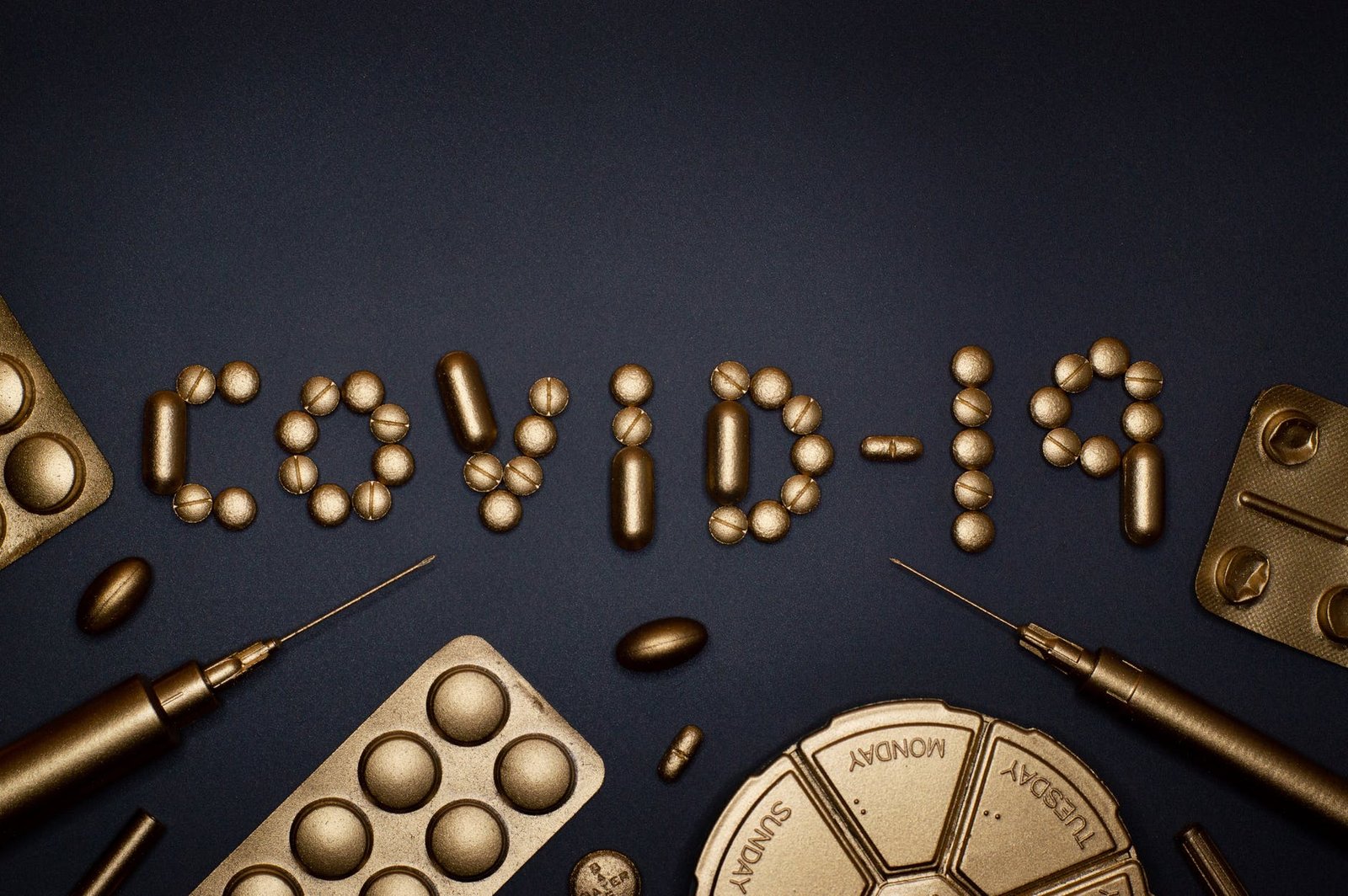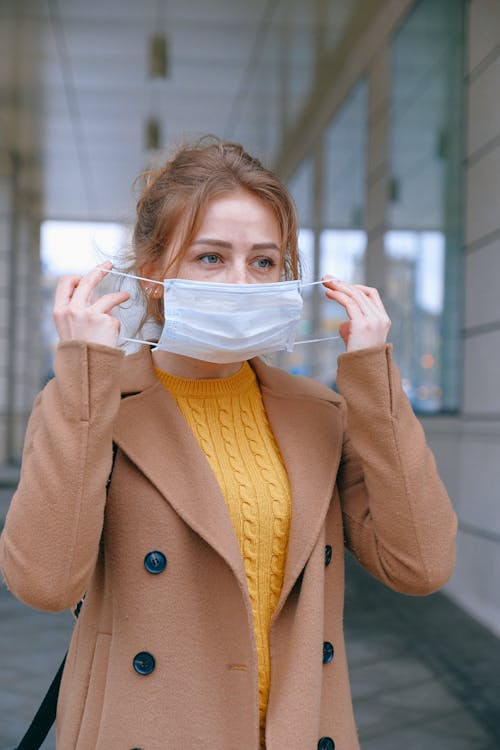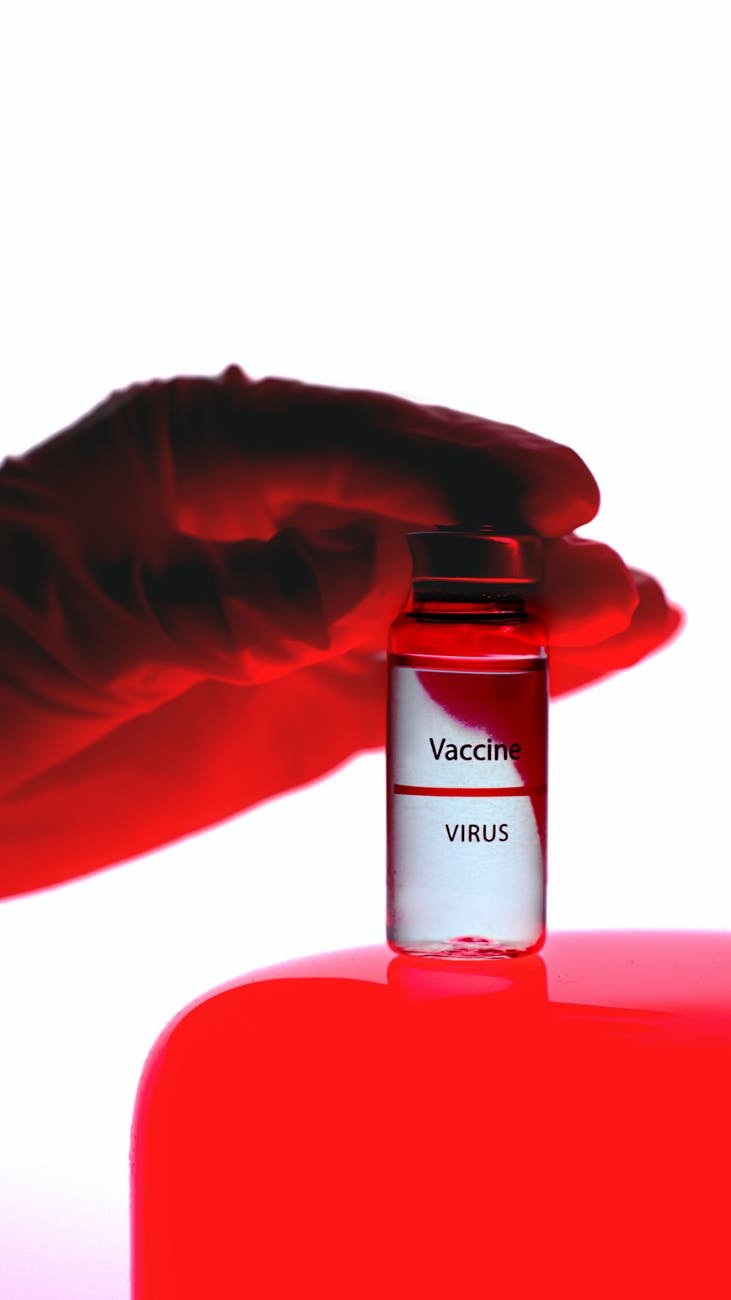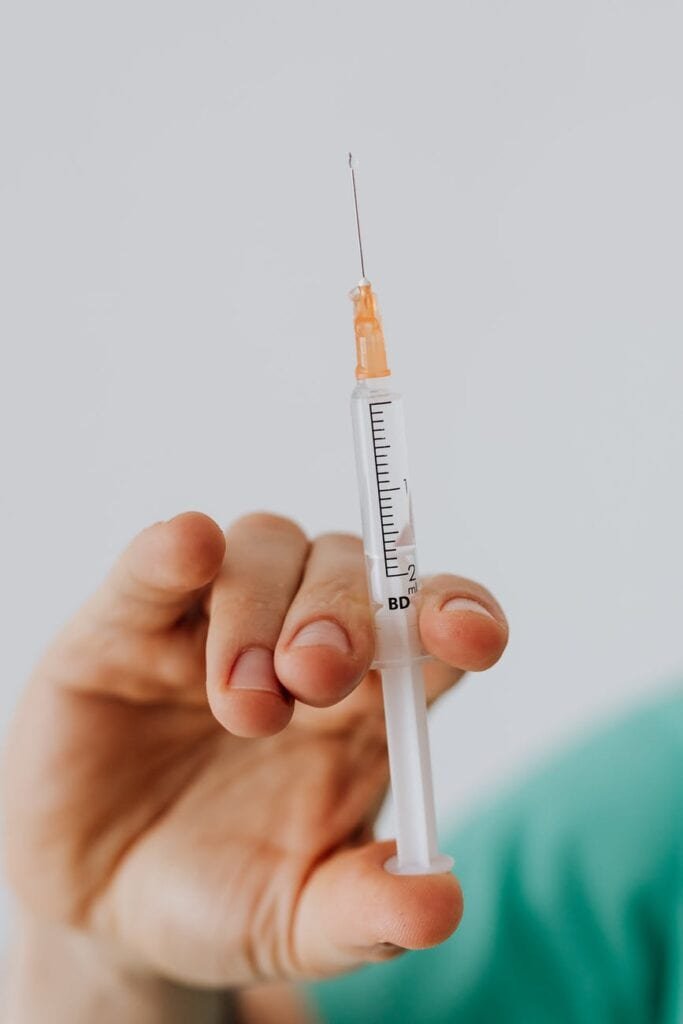COVID vaccines are designed to improve the immune response of our bodies to the virus that causes COVID-19. This, in turn, helps to avoid contracting and developing the illness. Different types of vaccines work differently to ensure this; however, COVID vaccines can do this task by one common mechanism. The vaccines do their function by producing a supply of “memory” T-lymphocytes and B-lymphocytes that will remember how to fight the COVID virus if the body is exposed to it in the future. Let us know the details of the COVID Vaccination Program in India.

COVID vaccine: Is it safe?
Sometimes after vaccination, symptoms such as fever are manifested. These symptoms are normal and indicate that the body is building immunity. Although there are no serious and life-threatening side effects with this vaccine, the Centers for Disease Control and Prevention (CDC) has advised patients to remain cautious. It has revealed that people with allergies to certain food, insects, and latex may be allergic to the COVID vaccine. This is particularly seen in the case of the Pfizer/BioNTech vaccine. Hence, patients prone to allergies are advised not to receive this vaccine.
COVID Vaccination Program rollout in India
On 3rd January 2021, the Indian drug regulators gave the go-ahead for two COVID vaccines. These vaccines will be used for the mass immunization programs that are estimated to cover around 300 million people. Both the vaccines will be administered; similarly, that is, in two doses. They are to be stored at standard refrigerator temperature 2 to 8 degrees Celsius. Initially, the country plans to vaccinate the 300 million frontline workers, elderly and vulnerable people by August 2021.
To ensure this supply, the Serum Institute of India has been mass-producing the vaccine. It thus has stockpiled over 50 million vaccine doses that are ready for distribution in India. The institute is ready to send these to approximately 30 to 40 government locations. The institute would then redistribute it to various small centers and clinics established for the mass vaccination program. To further ensure this rollout program’s success, the Indian government has been actively recruiting and training additional vaccinators and ramping up the stocks of cold–chain storage equipment like freezers, walk-in coolers, and ice-lined refrigerators in the past few months.
A dry run for COVID Vaccination Program has also been conducted on 2nd January 2021 at around 286 sites across India to familiarize officers at all levels regarding the operational guidelines. Concomitant with this, it is also revealed that over 114,100 workers have been trained to carry several tasks in addition to vaccination. These include verifying personal data, conducting cold chain and logistics management, and updating information using government software to ensure that every citizen of the country is vaccinated.
Currently approved COVID vaccines in India ( as of January 2021) :
The Indian drug regulators have approved two COVID vaccines for use in India. These are :
- Covaxin
- Covishield
Covaxin is an indigenously developed vaccine produced by the Hyderabad – based Bharat Biotech in collaboration with the Indian Council of Medical Research (ICMR) and the National Institute of Virology. Covishield is another notable vaccine that is approved for use in India. The University of Oxford develops this vaccine in association with the pharma giant AstraZeneca. The Serum Institute of India is mass-producing it.
Both these vaccines can be stored at 2 to 8 degrees Celsius, the same as the domestic fridge’s temperature. They are administered in two doses between 4 and 12 weeks intervals.
Another vaccine that is notable for its immunization is the vaccine developed by Pfizer/ BioNTech. It is currently being administered in many countries apart from India. The exclusion of this vaccine from India is due to its challenge in storage as this vaccine must be stored at -70 degrees Celsius. Since the temperatures rise to over 50 degrees Celsius in India in summers, the Indian drug regulators have decided to forgo this vaccine’s use at the moment.
How to register for COVID Vaccination Program in India?
The COVID Vaccine Intelligence Network or Co: WIN system is currently being used to track enlisted beneficiaries for the COVID Vaccination Program on a real-time basis. Only pre-registered beneficiaries will be vaccinated as per the prioritization, and on-spot registrations are NOT available for this.

The steps for registering in Co – WIN system, a digitalized platform, are as follows :
Step 1 – Self-register on the Co-WIN website.
Step 2 – Upload any one of the following photo identification such as Aadhaar Card, Driving License, Health insurance smart card, issued under the government’s scheme, Official identity cards issued to MPs, MLAs, MLCs, PAN card, Passbook issued by Bank or Post office, Pension document and Voter ID among others.
Step 3 – If an individual chooses to provide an Aadhaar card as a Photo ID, the Co – WIN system will perform an Aadhaar authentication. The individual can select any one of the authentication methods from the following methods: Biometric, OTP Authentication, or Demographic Authentication.
Step 4 – Following registration, the system will allocate every individual the date and time for vaccination. This will be intimated to the individual via SMS on the registered mobile number.
Step 5 – At the vaccination site, only the pre-registered beneficiaries will be vaccinated. There is no option for on – spot registrations.
Step 6 – Before vaccination, a vaccination officer will use the Co – WIN application to verify the beneficiaries whom Aadhaar authentication has been done at the time of registration as per the guidelines. For those whose Aadhaar authentication has not been conducted, the officer will first authenticate this if the Aadhaar card number is available. In case the number is unavailable, then it will use other Photo IDs as per the guidelines.
Step 7 – Once the beneficiary details are authenticated/verified, they will proceed with vaccination. The individual’s vaccination status will be updated to ‘Vaccinated’ in the application by the vaccination officer after confirmation of the same from the Vaccinator officer.
Currently, the Co-WIN app is in the pre-product stage, and hence it is not available to download for the common public yet. Over 75 lakh health officials are already registered under this vaccination program. They will receive the vaccine at the initial stages of the vaccination. The vaccination sessions are planned to accommodate around 100 beneficiaries per session at fixed session sites. Mobile teams are being considered for vaccinating the individuals belonging to the high–risk population.
Cost of COVID vaccination in India?
Serum Institute has announced that it would price Covishield at 440 rupees ( about $3 ) for the Indian government and around Rs. 700 to 800 for the private market. The price of Covaxin that is developed by Bharat Biotech is still unclear. However, reports have suggested that the company will sell this vaccine at Rs. 350 per dose.
How long will it take for the vaccine to work?
It typically takes a few weeks for the body to produce T-lymphocytes and B-lymphocytes after vaccination. Therefore, it is possible that a person could be infected with the virus that causes COVID-19 just before or just after vaccination and then gets sick because the vaccine did not have enough time to provide protection.
Are two doses of the COVID vaccine necessary for protection?
It is necessary to get the two shots of the vaccine as the first shot starts building protection by helping the body recognize the virus and prepares the immune system for future encounters with the virus. The second shot further strengthens the immune system, which provides the most protection the vaccine has to offer.
Are Covaxin and Covishield 100 % effective against COVID?
The overall efficacy of Covishield is found to be 70.42 percent, which is well above the 50 percent threshold set by many drug regulators. The effectiveness of Covaxin is yet to be ascertained. However, clinical trials have revealed that it produces a robust and strong immune response once administered in two shots. Covaxin is an inactivated vaccine made of killed or dead coronavirus. This vaccine has been administered to over 22,500 volunteers in India to date, and it is found to be safe and healthy.
Is it necessary for a vaccinated individual to wear masks while going out?

Yes, CDC has advised people to wear masks and maintain social distancing despite getting vaccinated to reduce the chances of getting exposed to the virus or spreading the virus to others. Simultaneous implementation of these measures and getting vaccinated is believed to offer the best protection from COVID – 19.
Does immunity from COVID – 19 last longer than protection from COVID vaccines?
As COVID -19 is a relatively new virus, experts are unsure of the natural immunity conferred following the infection. This protection could vary from person to person but is not standard. Hence, the exact duration and efficacy of this are yet to be ascertained. However, current evidence has suggested that reinfection with the virus causing COVID -19 is uncommon within 90 days after the initial infection. Concerning the protection offered by vaccines, the duration of this is again unclear as further data are needed to elaborate on this. Nevertheless, it is advised to get vaccinated regardless of whether the individual was affected by COVID -19 or not.
Who should we report to if we develop adverse effects post-vaccination?
In anticipation of adverse effects that may manifest in people following vaccination, India’s Central government has asked all the states to set up ‘Adverse Event Following Immunization’ ( AEFI ) surveillance in districts. The state AEFI committee will look into the cause of the adverse effect and ensure that the patients with the adverse effects will be treated accordingly.
Is COVID vaccination mandatory in India?
No, COVID vaccination is not mandatory in India. However, all the citizens are advised to get vaccinated to protect themselves from the disease and reduce the chances of spreading the virus to others. For safety and precaution, it is advisable to register for COVID Vaccination Program.
Can a person having COVID -19 ( suspected or confirmed ) be vaccinated?
A person with confirmed or suspected COVID-19 infection may increase the risk of spreading the same to others at the vaccination site. For this reason, infected individuals should defer vaccination for 14 days after symptom resolution.
If one is taking medicines for illnesses like Cancer, Diabetes, Hypertension, etc., can he/she take the COVID – 19 vaccines?
Yes, people with one or more of these comorbid conditions are considered to belong to the high-risk category. Thus, they must also get vaccinated against COVID -19 at the earliest.
How will beneficiaries receive information about the date of vaccination?

Following online registration in the Co – WIN system, the beneficiaries will receive an SMS on their registered mobile number specifying the date, place, and time of vaccination. On getting the dose of the vaccine, the beneficiary will receive an SMS. After all doses of vaccine are administered, the beneficiary will also receive a QR code certificate to the registered mobile number.
Are there any preventive measures and precautions that one needs to follow at the session site?
The individual is advised to rest for at least half an hour after the vaccination. He/She must report any discomfort or symptoms to the nearby health care workers at the earliest.


Pingback: Pharma News February 2021 Updates > PharmaCampus
Pingback: Pharma News – 20 January 2021 > PharmaCampus
Pingback: Pharma News – 20 February 2021 (Updates) > PharmaCampus
Pingback: AstraZeneca's COVID–19 vaccine > PharmaCampus
Pingback: The BioNTech/Pfizer COVID vaccines > PharmaCampus
Pingback: Lupin and Aurobindo Pharma Recall certain medications > PharmaCampus
Pingback: Johnson & Johnson’s COVID vaccine > PharmaCampus
Pingback: JCR Pharma plans to expand production > PharmaCampus
Pingback: GC Pharma supports South Korea in the COVID fight. > PharmaCampus
Pingback: Pfizer COVID – 19 vaccine in India Update > PharmaCampus
Pingback: Gland Pharma agreement with RDIF for Sputnik V > PharmaCampus
Pingback: Pfizer’s COVID–19 vaccine update > PharmaCampus
Pingback: Pfizer to supply COVID vaccine to India > PharmaCampus
Pingback: Covishield: The Covid vaccine of Serum Institute of India > PharmaCampus
Pingback: Covaxin: India's first indigenous COVID vaccine > PharmaCampus